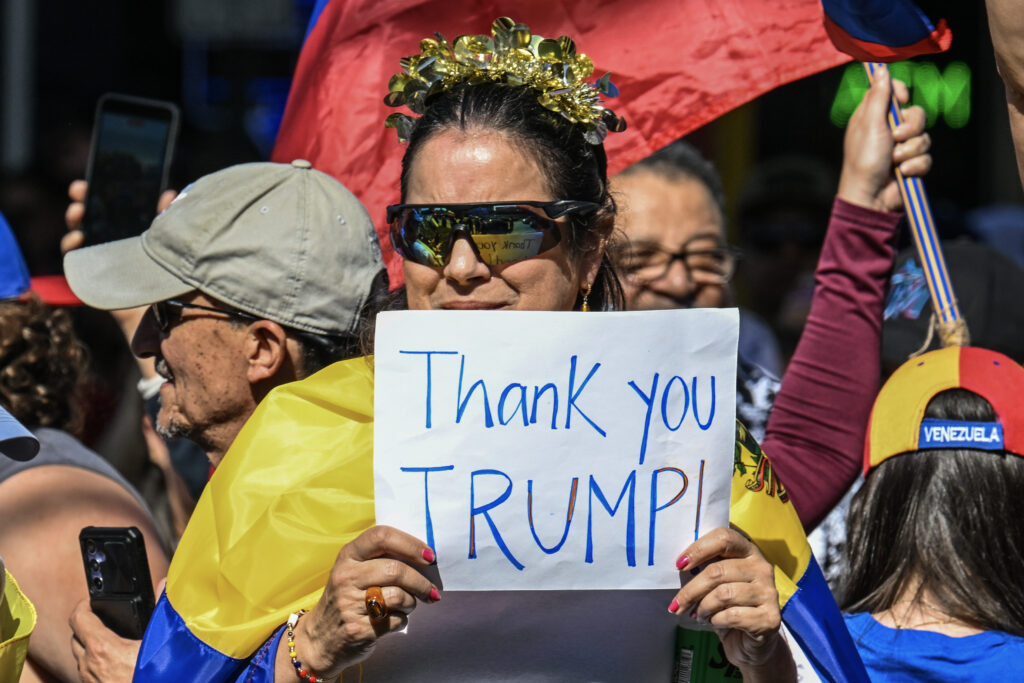L1: Lyon coule Monaco, Rennes s’offre le Losc, Nice se stabilise
Monaco a été battu à domicile par Lyon (3-1), comme le Losc par Rennes (2-0), samedi pour la 17e journée de Ligue 1, qui a vu le Nice de Claude Puel prendre un point encourageant face à Strasbourg.C’est Elye Wahi, tout juste recruté par les Aiglons, qui leur a permis d’égaliser contre Strasbourg et d’ouvrir sans faux pas l’ère Puel après l’échec de Franck Haise (13e place). Joaquin Panichelli avait ouvert le score dans cette partie animée.De son côté l’Anglais Liam Rosenior a peut-être connu son dernier match sur le banc alsacien, avant un départ vers Chelsea, de la même galaxie Blue Co. Il quitterait le club sur une note amère après un très bon début de saison, puisque Strasbourg (7e, 24 points) est désormais distancé par le train de tête.Car aux cinquième et sixième places, Lyon et Rennes (30 points) ont tous deux gagné samedi, profitant d’exclusions côté monégasque et lillois. Un doublé de Sulc, notamment, a scellé la rencontre à Louis-II, ainsi que le carton rouge de Coulibaly.Pour leur part les hommes de Habib Beye, sereins malgré la détermination des Lillois à ne pas craquer, ont fait la différence par Frankowski et Merlin après l’exclusion d’Alexsandro.Lille reste quatrième avec 32 points. Quant à Monaco, le début de mandat de Sébastien Pocognoli est décidément compliqué, avec une troisième défaite d’affilée et une 9e place loin des standards du club, deuxième puis troisième lors des deux dernières saisons.
Italie: la Juventus Turin et David se prennent les pieds dans le tapis
La Juventus Turin et Jonathan David ont bien mal débuté 2026: la Vieille Dame a archi-dominé Lecce samedi mais a dû se contenter d’un point à domicile (1-1) après un penalty raté par l’international canadien.La Juve est tombée de haut. Alors qu’elle avait remporté ses trois précédents matches de Serie A, elle n’a pas trouvé la clef face à un mal classé (16e).C’est même Lecce qui a rallié les vestiaires en tête à la pause grâce au Zambien Lameck Banda (45e+1), opportuniste après un mauvais dégagement d’Andrea Cambiaso.Si Weston McKennie, servi par le toujours précieux Kenan Yildiz, a rapidement égalisé (49e), les Bianconeri n’ont ensuite pas réussi à concrétiser leur nette domination.Ils ont tiré 26 fois au but, en cadrant à six reprises, quand Lecce n’a mis à l’épreuve Michele Di Gregorio qu’à… deux reprises, pour un total de six tirs.La différence ? Le gardien de Lecce Wladimiro Falcone qui a préservé le nul de son équipe dans le final avec un arrêt spectaculaire sur un tir de David (89e), avant que Yildiz ne trouve le montant gauche dans le temps additionnel (90e+4).Et aussi la panne de confiance de David. Depuis son arrivée en provenance de Lille l’été dernier, l’attaquant canadien n’a fait mouche qu’une seule fois en championnat, en août.Depuis, malgré sept titularisations, il n’a plus marqué et la presse italienne rapporte régulièrement que le Canadien de 25 ans a du mal à s’intégrer dans le vestiaire bianconero.Ses coéquipiers, Yildiz en tête, ont pourtant voulu prouver le contraire et booster sa confiance en le chargeant de tirer le penalty accordé à la 66e minute après un main dans la surface d’un joueur de Lecce.- Panenka ratée -Mais David qui a voulu surprendre Falcone avec une panenka, a complétement manqué son geste et sa tentative, trop molle, a été détournée du pied par le gardien de Lecce.Son entraîneur Luciano Spalletti n’a toutefois rien trouvé à redire: “Il est l’un de nos tireurs de penaltys, il les tire très bien, il a montré qu’il avait du caractère en choisissant de frapper dans l’axe et il a fait ce qu’il devait faire”, a-t-il insisté.L’ancien sélectionneur de l’Italie, arrivé à Turin en novembre, a en revanche regretté “l’absence de (ses) joueurs au premier poteau sur plusieurs situations qui auraient pu nous être favorables”.La Juventus se rapproche provisoirement à un point du podium (4e, 33 points), et à cinq (et un match en plus) de l’AC Milan, vainqueur à Cagliari (1-0) vendredi en ouverture de cette 18e journée.L’Inter Milan, 2e avec 36 points et deux matches en moins que la Juventus, reçoit Bologne dimanche, tandis que le champion en titre Naples, 3e (34 pts), se déplace à la mi-journée à Rome pour affronter la Lazio.L’autre club de Rome, la Roma, s’est incliné à Bergame 1 à 0 pour le retour de Gian Piero Gasperini, emblématique entraîneur de l’Atalanta pendant neuf saisons, avant de rejoindre la capitale italienne l’été dernier.Depuis qu’ils ont pris brièvement place dans le fauteuil de leader après la 12e journée, les Giallorossi ont du mal: ils ont perdu quatre de leurs six derniers matches et ont rétrogradé à la 5e place (33 pts).L’Atalanta s’est elle replacée à la 8e place (25 pts).
As Trump imposes ‘Donroe’ Doctrine, murky message to US rivals
With a major attack to arrest Venezuela’s leader, President Donald Trump is showing that the United States will impose its will in its neighborhood — and the lesson may not be lost on Russia and China.Trump described the raid to seize leftist Nicolas Maduro as an update of the Monroe Doctrine, the 1823 declaration by fifth US president James Monroe that Latin America was closed to other powers, then meaning Europe.”The Monroe Doctrine is a big deal, but we’ve superseded it by a lot, by a real lot. They now call it the Donroe document,” Trump told a news conference, slapping his name on the policy principle. “American dominance in the Western Hemisphere will never be questioned again.”Weeks earlier, White House policymakers had given more intellectual gloss for the same idea in a national security strategy that announced a “Trump Corollary” to the Monroe Doctrine.The policy, the strategy said, will authorize US intervention in Latin America for goals such as seizing strategic assets, fighting crime or ending migration, one of Trump’s top domestic goals.Venezuela has the world’s largest proven oil reserves, with China its top partner. Trump had justified intervention by alleging drug-smuggling from small boats off Venezuela and by Maduro himself.But the United States is not alone in wanting to exert itself over smaller regional neighbors.Russia’s Vladimir Putin invaded Ukraine in February 2022 after questioning the former Soviet republic’s historical legitimacy and vowing the removal of its elected president, Volodymyr Zelensky.China has refused to rule out force to seize Taiwan, a self-governing democracy, and has angered US allies by claiming rights to much of the South China Sea.The Venezuela raid came days after China carried out major military exercises aimed at simulating a blockade of Taiwan following a major US arms deal. A Chinese envoy met Maduro in Caracas hours before his capture.- US superpower status slips -Trump’s intervention is also sure to gain the attention of US allies that have been stunned by his threats over resources he sees as strategic.Trump recently named an envoy who said he would work to seize Greenland, an autonomous territory of Denmark, and he has threatened to take back the Panama Canal.Jennifer Kavanagh, director of military analysis at Defense Priorities, which supports US restraint, said she had long dismissed Trump’s Greenland talk.”Now I’m not so sure,” she said. “It wouldn’t be that hard for the US to put a couple hundred or a couple thousand troops inside of Greenland, and it’s not clear to me who could do anything about it.”Venezuela “does raise this question that if the US can declare a leader illegitimate, go and remove him and then run the country, why can’t other countries?” The United States, of course, has a long history of interventions without UN authorization, notably the 2003 invasion of Iraq.The difference, Kavanaugh said, is that back then the United States had far more relative power.”It wasn’t a matter of setting a precedent for other countries, because they just couldn’t aspire to that level of military power and the US could stop basically anyone who tried. But that’s not true anymore.”- Mixed messages -The United States for decades stood firm against Moscow and Beijing. But under Trump, Washington’s stance has become murkier.The new national security strategy calls for a refocus closer to home and says comparatively little about Russia and China, leading some critics to conclude that Trump essentially was acknowledging they enjoy their own spheres of influence.Trump has spoken favorably of China and played down the risks of a Taiwan invasion. Before taking office Trump suggested Taiwan should pay more for its US “insurance policy.”On Ukraine, Trump has mused that the country is destined for defeat against larger Russia, and has pressed Kyiv to accept territorial concessions.At the very least, Venezuela will herald a harder US line within Latin America, said Alexander Gray, an Atlantic Council scholar who served on the National Security Council during Trump’s first term.”I think it’s very clear that there will no longer be a level of tolerance for the type of even lower-level Chinese, Russian and Iranian influence that we’ve seen over the last couple of decades,” Gray said.
Venezuelans in Florida rejoice over Maduro’s fall, fret over future
Venezuelans who loathed President Nicolas Maduro and for years dreamed of his ouster hugged, sang and cried with joy Saturday over his seizure in a stunning nighttime US military raid.Now these Venezuelans — forced to flee their country due to financial hardship or political persecution — are hoping for a better future for Venezuela after years of political and economic crisis.Before dawn, Venezuelans started gathering outside El Arepazo, a popular restaurant in Doral, a Miami-area city where more than 40 percent of the population hails from Venezuela.”We woke up with the news that someone finally had done justice, and this fills us with happiness,” said Douglas Zarzalejo, a 55-year-old Venezuelan who has lived in Florida for 11 years.”Our country’s recovery has begun,” he added.Many of the revelers waved the red, yellow and blue Venezuelan flag as they sang and hugged each other over news of the fall of Maduro, who was captured with his wife Cilia Flores and taken out of the country en route to New York to face trial on “narco-terrorism” and weapons charges.The Venezuelans here blame him for the country’s ugly slide from oil wealth to economic basket case beset with shortages of everything and harsh political repression.Amid the celebration, one young man waved a poster that read, “Trump was right about everything.”For many people in Doral, Trump is a hero. He waged a weeks-long campaign of military pressure leading up to the pre-dawn raid and likened Maduro to a drug kingpin whose days were numbered.”Trump will go down in history as the first president who finally faced up to these corrupt people who kidnapped our country,” said Zarzalejo.- ‘Justice was done’ –Across the street from the Arepazo restaurant, a woman named Liz Vivas cried as she remembered her husband, Wilmer Munoz, a civil servant who had criticized the Maduro government. Vivas said the authorities caused him to disappear in 2018.”I know nothing about him, so this is great news. I could not bury him. I could not see him. But thanks to the fall of Nicolas Maduro, I can breathe a bit,” said Vivas, who is 39.”I feel like justice was done.”As Trump began a mid-day press conference at his Mar-a-Lago estate to talk about the overnight raid that nabbed Maduro, the hundreds of Venezuelans celebrating in Doral fell silent to watch and listen on their cell phones.Trump said the United States will run Venezuela until a transition is possible and dampened the festive mood when he said Secretary of State Marco Rubio had been in contact with Delcy Rodriguez, Maduro’s stalwart vice president.”She’s essentially willing to do what we think is necessary to make Venezuela great again,” Trump said.Another buzzkill came when Trump dismissed opposition leader Maria Corina Machado, who is wildly popular among the Venezuelan diaspora. Trump said she cannot be leader now because she “doesn’t have the support within or the respect within the country.”This is a shocking statement — the United States and much of the international community have argued that the winner of Venezuela’s 2024 election was not Maduro as he claimed but rather Edmundo Gonzalez Urrutia, who stood in for Machado when the government barred her from running for president.”Maria Corina is our president. We have no representative other than her,” Vivas said emphatically.- ‘Mixed feelings’ -For some Venezuelans in Florida, the cloud of uncertainty now hanging over Venezuela saps the euphoria they feel over the ouster of Maduro.”I do not know what is going to happen. Trump just said that the vice president (Rodriguez) is with him. He is crazy. Everyone loves Maria Corina,” said Eleazar Morrison, a 47-year-old Venezuelan.”I don’t trust Trump but I am very grateful,” he added.Raul Chavez, a Venezuelan living in Miami, said he was worried by the remarks of Trump, who also said the United States will now tap Venezuela’s oil wealth.”I have mixed feelings. I really want Venezuela to be free, but I also want it to be independent, and we hope there can be a transition or an elected Venezuelan government.”
Les Etats-Unis “dirigeront” provisoirement le Venezuela après la capture de Maduro
Le président américain Donald Trump a déclaré samedi que les États-Unis “dirigeraient” le Venezuela jusqu’à ce qu’une transition politique “sûre” puisse avoir lieu, après l’opération américaine de capture du président vénézuélien Nicolas Maduro à Caracas.”Nous allons diriger le pays jusqu’à ce que nous puissions procéder à une transition sûre, appropriée et judicieuse”, a dit le président américain lors d’une conférence de presse en Floride. Il n’a cependant pas précisé pour l’heure comment les Etats-Unis allaient diriger le pays. Et dans les rues de Caracas, aucun signe d’une présence militaire américaine n’était visible, a constaté l’AFP.Le président américain a ajouté que les Etats-Unis étaient prêts à lancer “une seconde attaque plus importante”. “Nous n’avons pas peur d’envoyer des troupes sur le terrain si besoin. En fait, nous avions des troupes au sol à un très haut niveau la nuit dernière”, a-t-il ajouté.Donald Trump avait annoncé à l’aube sur son réseau Truth Social que les forces américaines avaient capturé et exfiltré son homologue vénézuélien, Nicolas Maduro, ainsi que son épouse, après une “attaque de grande envergure” contre le pays sud-américain. Présent au côté de Donald Trump, le chef d’état-major américain, le général Dan Caine, a donné quelques détails sur l’opération militaire baptisée “Absolute Resolve” (Détermination absolue). L’opération “discrète, précise et menée pendant les heures d’obscurité maximale du 2 janvier, est le point culminant de mois de préparation et d’entraînement”, a déclaré le général Caine. Elle a mobilisé plus de 150 avions, a-t-il précisé. Les Etats-Unis ont affirmé qu’aucun Américain n’a été tué lors de l’opération, dont le bilan humain côté vénézulien reste inconnu.Première dans l’ordre de succession au pouvoir, la vice-présidente du Venezuela, Delcy Rodriguez, a réagi en direct à la télévision, affirmant que Nicolas Maduro était “l’unique président” du pays et exigeant sa “libération immédiate”.”Nous sommes prêts à défendre le Venezuela, nous sommes prêts à défendre nos ressources naturelles qui doivent servir au développement national”, a déclaré Mme Rodriguez, à la tête d’un Conseil de défense.En conférence de presse, Donald Trump a assuré que la vice-présidente avait dit au secrétaire d’Etat américain Marco Rubio être prête à coopérer avec les Etats-Unis après l’éviction de Nicolas Maduro. Il a également déclaré qu’il autoriserait les compagnies pétrolières américaines à se rendre dans le pays sud-américain pour exploiter ses réserves de brut, ajoutant que l’embargo américain sur le pétrole vénézuélien restait en vigueur.- “Sans résister” -“Maduro et son épouse, tous deux inculpés, se sont rendus sans résister et ont été placés en détention par le ministère de la Justice, avec l’aide de notre incroyable armée américaine”, a précisé le général Caine.Nicolas Maduro, 63 ans, et son épouse Cilia Flores, 69 ans, sont à bord d’un navire en route vers New York pour y être présentés à la justice, selon le président américain.Il a affirmé avoir regardé en direct la capture, dans une sorte de “forteresse”, du dirigeant vénézuélien.Lui et son épouse sont accusés par la justice américaine de “narcoterrorisme” et importation de cocaïne aux Etats-Unis, selon un nouvel acte d’accusation rendu public samedi.Sans préciser comment Washington envisageait la transition du pouvoir au Venezuela, Donald Trump a d’ores et déjà rejeté sèchement toute possibilité d’une accession à la présidence de la cheffe de l’opposition vénézuelienne et prix Nobel de la paix, Maria Corina Machado.”Je pense qu’il lui serait très difficile d’être à la tête du pays. Elle ne bénéficie ni du soutien ni du respect au sein de son pays”, a-t-il lancé, ajoutant que les Etats-Unis n’avaient pas eu de contact avec elle.”L’heure de la liberté est arrivée”, avait réagi l’opposante après l’annonce de la capture du président vénézuélien, estimant que le candidat de l’opposition à la présidentielle de 2024, Edmundo Gonzalez Urrutia, en exil en Espagne, devait “assumer immédiatement” la présidence.La France a plaidé pour une transition assurée “au plus vite” par M. Gonzalez Urrutia, tandis que Madrid a appelé à une transition “juste et dans le dialogue”. Londres a annoncé des discussions avec Washington “dans les jours à venir” sur le sujet.Un silence presque sépulcral et une odeur de brûlé ont envahi samedi Caracas, la capitale du Venezuela, a constaté l’AFP. Les rideaux métalliques des magasins sont baissés. Les rues, et même les grandes avenues, sont désertes ou presque.Quelque 500 partisans du président vénézuélien, se sont rassemblés non loin du Palais de Miraflores, le palais présidentiel à Caracas, brandissant des portraits de Nicolas Maduro et des drapeaux vénézuéliens.”Comment se fait-il qu’un gouvernement étranger vienne s’ingérer dans le pays et en expulse le président? (…) C’est la force du puissant, c’est la force du caïd de quartier”, a déploré Katia Briceño, une professeure d’université de 54 ans.- “Serrer les rangs” -Moscou a “exhorté” les Etats-Unis à “libérer le président légalement élu d’un pays souverain ainsi que son épouse”. Pékin, un autre allié de Caracas, a “condamné fermement le recours flagrant à la force par les Etats-Unis contre un Etat souverain et leur action contre son président”.En pleine nuit, les frappes nocturnes ont embrasé le ciel de Caracas et de ses environs, tirant les habitants brutalement de leur sommeil. De premières puissantes explosions ont été entendues peu avant 02H00 du matin (06H00 GMT) à Caracas et dans les environs de la capitale, jusqu’à 03H15 (07H15 GMT), a constaté l’AFP. Des témoins ont rapporté avoir entendu des explosions à l’aéroport et au port de Caracas, ainsi qu’à Higuerote, à une centaine de kilomètres à l’est de Caracas. Des explosions suivies de panaches de fumée et d’incendies ont visé le Fuerte Tiuna, le complexe militaire le plus important du Venezuela, qui abrite le ministère de la Défense et l’Académie militaire.L’offensive américaine survient alors que Donald Trump avait évoqué la possibilité de frappes terrestres contre le Venezuela et affirmé que les jours du président Maduro étaient “comptés”, après avoir fait déployer une flottille de guerre dans les Caraïbes contre le narcotrafic et mené des frappes meurtrières contre des bateaux.Le secrétaire général de l’ONU Antonio Guterres s’est inquiété “que le droit international n’ait pas été respecté”, déplorant un “dangereux précédent”.Le Mexique et le Brésil ont condamné les frappes américaines, saluées à l’inverse par le président argentin pro-Trump, Javier Milei, et par Israël.Le président cubain, Miguel Diaz-Canel, a appelé les pays d’Amérique latine à “serrer les rangs” après l'”enlèvement” du président Maduro, au moment où Marco Rubio a estimé que le gouvernement communiste à La Havane devrait désormais s’inquiéter pour son avenir.





